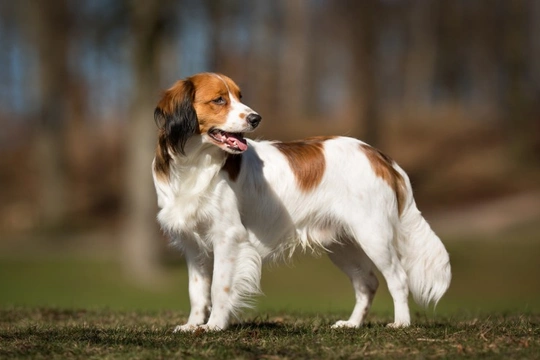
ENM (Hereditary Necrotising Myelopathy) in Kooikerhondje Dogs
Hereditary necrotising myelopathy (ENM), also known as leukodystrophy or Kooiker paralysis, is a serious hereditary condition in Kooikerhondje dogs that affects the spinal cord. This progressive neurological disorder typically appears between 3 and 15 months of age, causing a gradual loss of mobility that eventually leads to paralysis and death.
The disease involves a progressive destruction of the spinal cord's white matter, primarily caused by a genetic mutation identified in the IBA57 gene. Importantly, spinal degeneration from ENM is not painful, but the resulting paralysis significantly reduces the dog's quality of life.
How ENM Affects Kooikerhondje Dogs
The earliest signs often begin with hind limb weakness, an abnormal gait, and wearing down of the dog's toenails due to scuffing. This is typically noticed by 3 to 12 months old, sometimes as late as 15 months. As the disease progresses, paralysis advances from hind limbs to forelimbs and eventually results in tetraparalysis, including the inability to breathe properly.
Unfortunately, most affected dogs do not live past two years of age, often being euthanised to prevent suffering. While there is no cure or effective treatment, early recognition and diagnosis are important for management and breeding decisions.
Genetics and Inheritance
ENM is inherited as an autosomal recessive condition, meaning a dog must inherit two copies of the mutated gene—one from each parent—to be affected. Dogs can be one of three genetic statuses:
- Clear: No copy of the gene mutation and will not develop or pass on ENM.
- Carrier: One copy of the mutated gene but typically unaffected; however, they can pass the mutation to offspring.
- Affected: Two copies of the mutation, leading to the disease manifestation.
The combination of parent statuses determines the likelihood of affected puppies:
- Two clear dogs produce only clear puppies.
- Two carriers can produce 25% affected, 50% carriers, and 25% clear puppies.
- A carrier and clear dog produce 50% carriers and 50% clear puppies.
- An affected and clear dog produce all carriers.
- An affected and carrier dog produce 50% affected and 50% carrier puppies.
- Two affected dogs produce all affected puppies.
Diagnosis and Testing
Diagnosis involves clinical examination, including noting abnormal gait and hind limb reflexes, alongside advanced techniques such as MRI to detect spinal cord lesions. However, the key measure to prevent ENM is genetic testing of breeding dogs.
Pre-breeding screening is strongly encouraged and mandatory for Kooikerhondje dogs in their breed's country of origin, the Netherlands. Potential breeders can have their dogs DNA tested via approved laboratories with samples taken by vets to determine the dog's status.
This testing helps responsible breeders avoid mating two carriers or affected dogs together, thereby reducing the incidence of ENM in the population over time.
Responsible Breeding and Prevention
Due to the severity and incurable nature of ENM, responsible breeding practices are essential to prevent the disease's spread. Avoiding breeding carriers with carriers or affected dogs is the best approach.
With rigorous genetic screening and careful mating decisions, some populations of Kooikerhondjes in the Netherlands have successfully eliminated the birth of puppies affected by ENM.
Conclusion
Hereditary necrotising myelopathy is a devastating genetic condition primarily affecting Kooikerhondje dogs. Although incurable and progressive, its impact can be minimised through awareness, early detection, and genetic testing.
Prospective or current breeders should prioritise genetic screening of their dogs to uphold responsible breeding standards and protect this beloved breed from suffering. If you own or are interested in a Kooikerhondje, talk to your vet about testing and how to help reduce ENM in the breed population.



